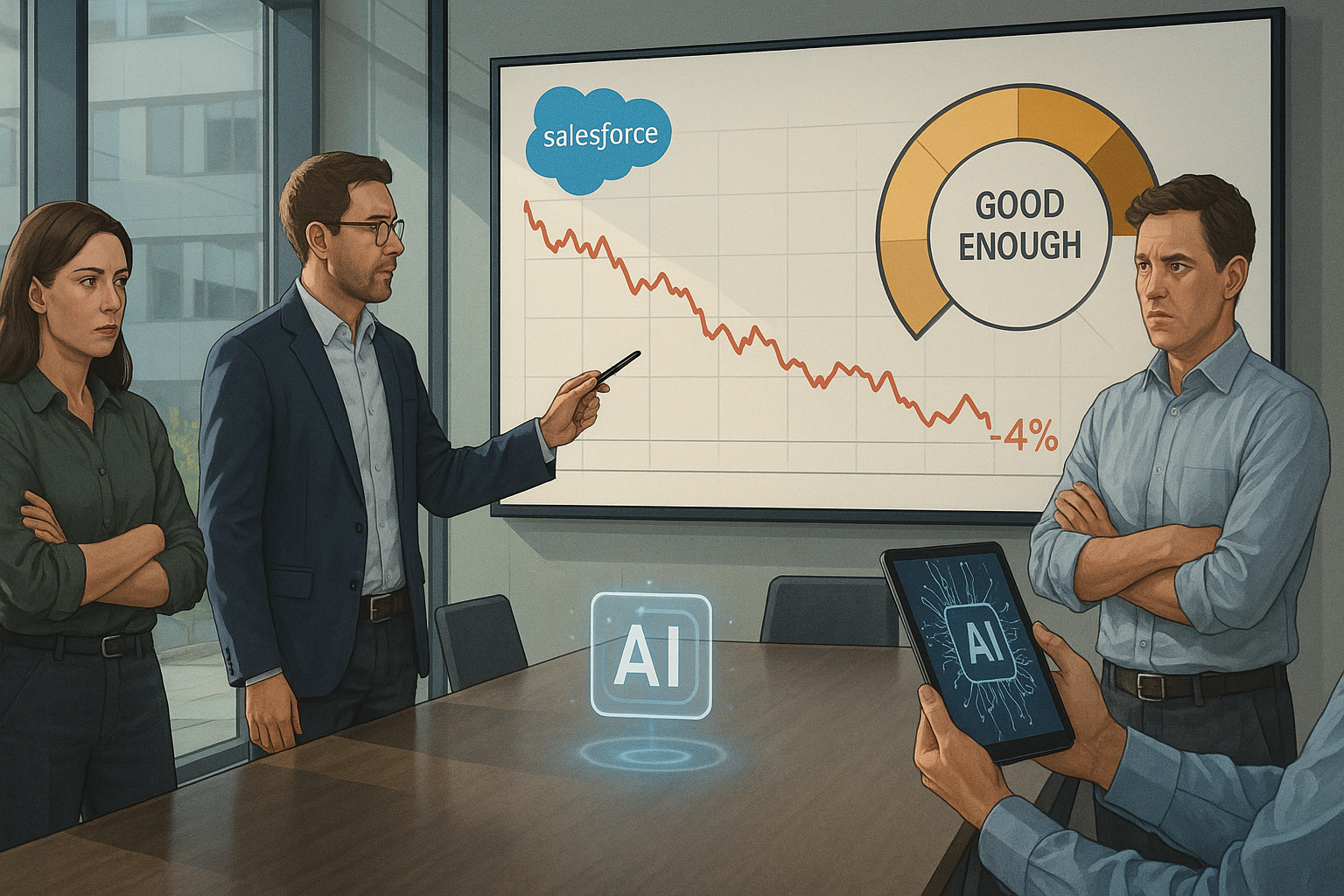Wall Street just gave Salesforce a painful reminder that in today's tech landscape, solid performance simply doesn't cut it anymore. Not when AI is reshaping expectations faster than companies can recalibrate their promises.
The cloud computing pioneer watched its stock tumble 4% in after-hours trading Wednesday—despite actually beating analyst expectations. Let that sink in. They cleared the bar on both earnings ($2.91 adjusted EPS versus the predicted $2.78) and revenue ($10.24 billion compared to forecasts of $10.14 billion), and investors still headed for the exits.
What gives?
In the simplest terms, Salesforce has stumbled into what I'd call the "merely competent" zone—that dangerous middle ground where your performance is objectively fine but subjectively disappointing. Their third-quarter revenue guidance landed with all the excitement of a damp paper towel in a market hungry for fireworks.
The numbers tell a story that would be impressive in almost any other context. Ten percent year-over-year revenue growth? Most CEOs would be popping champagne. But tech isn't "most industries," and 10% growth for a company once considered a high-flyer feels... pedestrian.
Look, context matters here. Salesforce has watched its stock slide 23% this year while its tech behemoth peers have been on a tear. It's underperforming nearly every other stock in the Dow. Jefferies points out that its enterprise value to free cash flow ratio has cratered to a 10-year low. Ouch.
I've covered enterprise software for years, and there's a cruel irony at work. Salesforce is doing exactly what responsible companies should—offering realistic guidance, focusing on profitability (they actually raised their full-year earnings outlook), making strategic acquisitions like the $8 billion Informatica deal. And the market's response? A collective shrug.
It's the corporate equivalent of doing your homework, eating your vegetables, and getting to bed at a reasonable hour—only to watch the cool kids get all the attention.
The AI factor looms large here. Salesforce keeps talking about its AI investments and its Agentforce AI software, but investors seem unconvinced. There's a distinct "prove it" sentiment in the air. The company that helped pioneer cloud computing now finds itself potentially being disrupted by the very technological revolution it helped make possible.
This raises an interesting question: Is the market being irrationally harsh, or is it correctly identifying a company that's missed a crucial inflection point?
(I suspect both answers are partially correct.)
The path forward isn't complicated, though it is challenging. Salesforce needs to convince Wall Street that their AI approach isn't just another feature add-on but something that fundamentally transforms their business model. Simply raising prices on some products, as they announced during the quarter, feels like tinkering at the margins when the market is looking for reinvention.
Until then, Salesforce remains in that awkward position that any former star student recognizes—being good at a time when only greatness gets rewarded.
Sometimes being merely good... just isn't good enough anymore.
